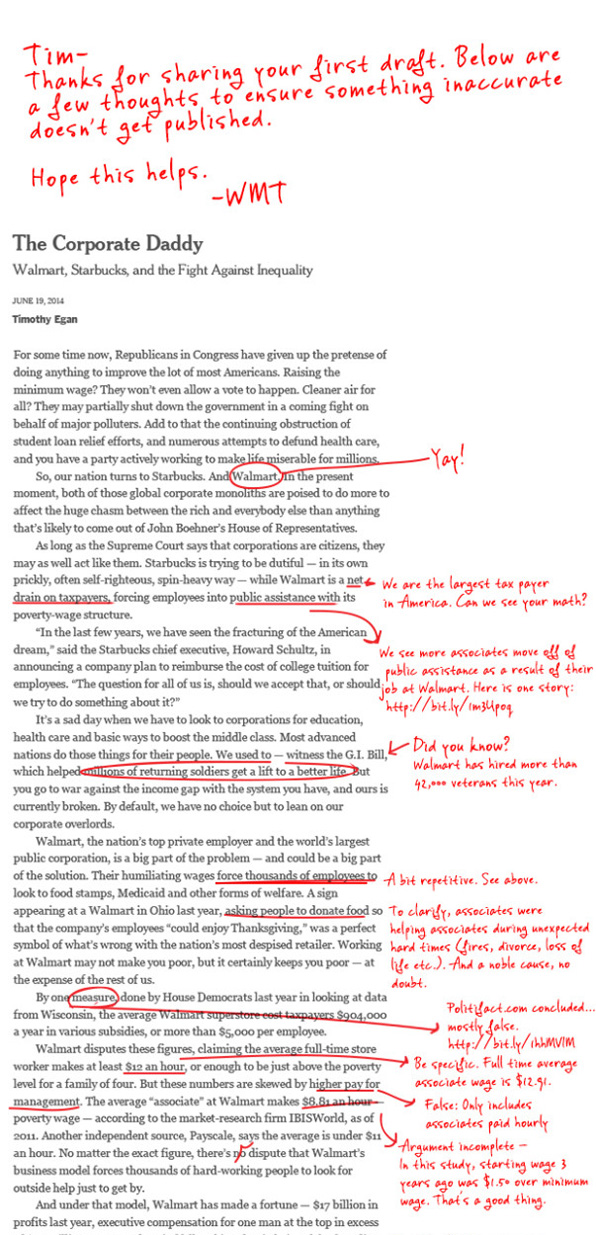In the old days, if a journalist wrote a news article or opinion column that you believed was inaccurate or unfair, you had only three options:
- Write a letter to the editor or column responding to it, and hope they print it.
- Ask for a face-to-face meeting with an editor and the writer.
- Cancel your subscription, an option that does nothing to help your cause.
Back then, only newspapers, magazines, TV and radio were the media. Today, you are the media too. Your platform might not be as big as theirs, but you have tools to fight back.
That’s what Walmart demonstrated after Timothy Egan, a columnist for the New York Times, wrote a June 19 opinion column spanking the retailer for low wages, part-time contracts and other sins that have resulted in “public disdain for the company.”
That same day, Walmart responded by fact-checking the entire column in red and posting it on their blog. Here’s part of it:

Whether you not you agree with the Times column, this is an excellent example of one way to fight back if you feel the media has treated you unfairly. Walmart’s rebuttal had much more reach than the Times column. It was covered by Forbes, Fox News, Business Insider and a variety of conservative media outlets.
You Will be Fact-Checked Too
Walmart’s rebuttal was clever and effective. But here’s the danger in a public fact-check. Someone, somewhere, will probably fact-check you, too.
Mark Gongloff, a columnist for The Huffington Post, responded by Fact-Checking Walmart’s Fact-Check of The New York Times.
And the debate probably won’t stop there.
This is Why You Should be Blogging
If a journalist or blogger treats you unfairly, one of the best places to respond is at your own blog where you have full control of the message. You can then pitch other media outlets and point them to your blog post.
The Walmart-New York Times battle is one more example of why most companies should be blogging. If you want to respond but you don’t have a blog, you’re forced to rely on an expensive press release distribution service.
You can respond on social media sites like YouTube and Facebook, but the message will be lost on those noisy platforms.
What Would You Do?
Would you publicly fact-check a journalist’s or blogger’s article about you? If not, why not? I’d especially love to hear from PR pros and business owners.
Joan, one of the reasons Walmarts retort works well is that it included humor, a compliment, and other positive suggestions for further reading and possibly even more articles for Egan to write. By avoiding an argumentive tone and replacing it with a playful one, Walmart avoids the disgruntled, picked on, poor-me tone that generally works against those inclined to fight back.
(By the way, I, too, spelled Walmart correctly, though any confusion is at least partly because Walmart changed its spelling midstream!)
Best,
Carolyn
Blogging for writers at http://sharingwithwriters.blogspot.com (See, I do take your advice!)
Thanks for commenting, Carolyn. It will be interesting to see how long this squabble continues.